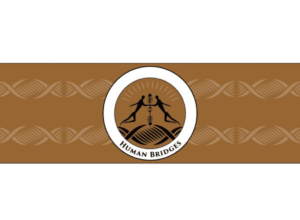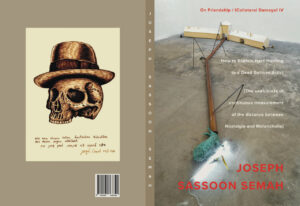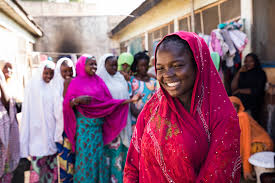The Great Archaeological Discovery Of Our Time
 03-08-2024 ~ An interview with renowned archaeologist Gary M. Feinman on the emergence of a global data set from our past that humanity can use to prosper—and avoid the biggest mistakes.
03-08-2024 ~ An interview with renowned archaeologist Gary M. Feinman on the emergence of a global data set from our past that humanity can use to prosper—and avoid the biggest mistakes.
The motives that drove archaeologists of the past included a thirst for glory, a taste for treasure, and a desire to enshrine a new political era with the legitimacy of the ancient past.
Gradually, over the decades leading closer to ours, the discipline matured, gaining an ethical framework, and started asking questions about the societies and lifestyles of the people who had left their traces behind. Archaeologists began to compare their evidence to how we live now and increasingly started hunting for the origins of modern-day problems, from plagues and warfare to inequality. Archaeological research spread beyond the palaces and cities of a few civilizations to six continents, and the rapid growth of evidence in human origins produced a global outlook and a 6 million-year-long clock to record the gradual changes in the human story that led us to the present.
The diligent research of tens of thousands of archaeologists carefully documenting the past all over the planet has accumulated and crossed a new threshold leading to big implications: It’s socially useful information that we can plug into improving our lives.
Our sample size of this greater past dwarfs by many magnitudes what we thought history used to be. Thanks to advances in technology, the data about the human story can integrate and interact with the records we keep today.
Many modern human problems are the result of “evolutionary mismatch”—our lifestyles are at odds with the biological capacities we developed and relied on for millions of years to get here—and range from heart disease to various forms of addiction and ADHD. A synthesis of human origins research and our new understanding of human biology presents a powerful perspective and roadmap for dealing with some of our biggest challenges.
By combining that synthesis with the archaeological record’s increasingly detailed knowledge of human settlement and state formations, from its origins to the present, we can build from a universalizing framework and global data set. This approach can better integrate the wider body of Indigenous knowledge and worldviews than the Western-based historical models and understanding of the human story that continues to hold sway.
One of the first to see the scale of this opportunity is archaeologist, researcher, and professor Gary M. Feinman, MacArthur Curator of Mesoamerican, Central American, and East Asian Anthropology at the Field Museum of Natural History in Chicago. Feinman and a growing cast of colleagues have turned stereotypes about Mesoamerican societies on their heads—many were cooperative, relatively egalitarian—and they developed an impressive array of frameworks that allow us to compare different aspects of societies from various times and places, including ours.
Feinman has been a prominent advocate for developing better models to interpret the past and for the synthesis of information across time periods and regions of the planet. We are stronger when we can draw from a broader set of parameters, counterexamples, and nuances that prevent the common human instinct to take off on flights of fancy.
I thought readers could benefit from sharing our conversation about the great archaeological discovery of our time: the realization that this new data set is a powerful engine for the betterment of humankind.
Jan Ritch-Frel: Let’s start with a great essay you wrote in 2023, “Learning from History, If We Dare.” You wrote of a “treasure trove of information that just may guide us toward better futures.” We’re in an era, thanks to accumulations of evidence and technology, where humanity has a critical mass of history at its fingertips that it has never had before. Why is this significant?
Gary M. Feinman: As deep-time historians, we have finally gotten the volume and multiple scales of data that permit comparisons across different cultural periods, over long spans of time, and diverse social formations. In a real sense, through archaeology, we can now begin to assess a truly global historical record that is not narrowly restricted to just literate societies or the European past. For a long time, the classical Mediterranean world or medieval Europe—both known from texts—were used as proxies for humanity’s past. Now, we know that is not appropriate, as our past as a species has neither been uniform nor linear.
At the same time, we now have models that help us identify and point ourselves toward understanding what underpins good governance, collective and cooperative behavior, as well as the causes of economic inequality and their alternatives. The social sciences have finally discarded 200-year-old approaches to understanding the past, such as the idea that the nations of Europe are the pinnacle and end-point product of steady human progress. A historical framework pegged to that framework makes useful comparisons across history almost impossible. Read more
Speaking Papiamentu ~ On Re-Connecting To My Native Tongue
 03-07-2024 ~ It starts at Schiphol, the Amsterdam airport. Before that, I am still immersed in my life in Jerusalem, busy with family matters and with grassroots activism against the Israeli occupation, while under pressure to finish grant proposals for the multicultural Jerusalem feminist center and art gallery where I work. I do not have time to connect emotionally to my trip, which still feels more like a yearly obligation to visit my elderly mother in Curaçao, when I would rather spend my precious vacation time trekking in Turkey or Nepal.
03-07-2024 ~ It starts at Schiphol, the Amsterdam airport. Before that, I am still immersed in my life in Jerusalem, busy with family matters and with grassroots activism against the Israeli occupation, while under pressure to finish grant proposals for the multicultural Jerusalem feminist center and art gallery where I work. I do not have time to connect emotionally to my trip, which still feels more like a yearly obligation to visit my elderly mother in Curaçao, when I would rather spend my precious vacation time trekking in Turkey or Nepal.
I usually have a few hours to kill, not enough to take the train into Amsterdam and visit old friends, which I do on my return trip when I have almost twelve hours between planes. And so, I silently wander around the airport, feeling a little like a spy, as I do in Jerusalem when I hear Dutch tourists speaking on the street, not suspecting that I, who probably look like a local to them, would understand. Not identifying myself as a speaker of Dutch, I take in the talk, smiling to myself, my little secret.
Here, in transit at the airport – a liminal space par excellence – I sometimes pretend to be a total stranger and address the salesperson in English. Perhaps that has more to do with the fact that I have not yet woken up my slumbering Dutch, or do not want to give away my unfamiliarity with the currency and other taken-for-granted facts of daily life in the Netherlands.
Or perhaps it is my resistance to being taken for an “allochtoon” – that polite way they refer to the “not really Dutch,” who nevertheless hold Dutch citizenship – a category that groups together the mostly Moslem migrants and those of us, from the former Dutch colonies, blacks and whites alike. It is a label that had not yet been coined when my schoolteachers in Curaçao taught us to see Holland as our “mother country,” to sing Wilhelmus Van Nassauwe, the Dutch national anthem, on Queen Juliana’s birthday and to accept the Batavians, a Germanic tribe, as “our” ancestors. They say that when you count, you invariably give away your mother tongue – to this day I count not in Papiamentu, but in Dutch, so totally did I embrace the colonial language.
I was four when I learned Dutch in kindergarten. I remember the feeling of utter embarrassment when everyone expected me to speak Dutch with my cousins whose father was Dutch, and I ran away crying. I was losing the secure ground that Papiamentu provided, having to jump into the deep waters of a foreign language without a life-vest before I knew how to swim.
Very soon, however, I was speaking Dutch fluently, determined to excel in the language. I wanted to know it even better than the Dutch children whose parents came from Holland. I spoke Dutch with all my school friends, even though most of us spoke Papiamentu at home, including the handful of schoolmates from my own community, the Sephardic Jews who settled on the island in the seventeenth century, after fleeing the inquisition in Portugal and Spain.
In my elementary school days, the teachers forbade us to speak Papiamentu even in the schoolyard, claiming it was the only way to learn proper Dutch. And so, I read, wrote, and thought in Dutch – it became my first literary language, as Papiamentu was basically only a spoken language at that time. Now, as I write this in 2007, after forty-two years away from the Dutch speaking world, my Dutch gets rusty, until I find myself again surrounded by its sounds and it returns to me and becomes almost natural.

I roam around the halls of the airport’s immense shopping center, not quite knowing what I am looking for. It is rather busy at the camera counter – I realize it is not a place to come with all my questions about which new camera to buy, my first digital SLR, after getting excited with the results of my digital point and shoot. Up to now, I had refrained from following the footsteps of all the other photographers in my family and never took my photography seriously. All that changed when I realized that editing my digital photos could finally give me the control over my images that I sought.
No, there is no point shopping here, I’d better look at cameras in Curaçao at a more relaxed pace, where the prices will certainly be lower. At least they used to be, when I was growing up and the island was still a duty-free paradise for American tourists.
Suddenly I remember that once, in these huge avenues of shops designed to entice travelers on the move, there used to be a stand with fresh, raw herring. I do not see it anymore, even though this is still the season of the celebrated first herring catch – the end of June. It fills me with longing, even though “new” herring was not something we ate at my home, it is what the “real Dutch” loved. Raw herring is a taste I developed later, and yet, it is so very much a taste from that past, perhaps from my acquired Dutch identity, and I feel that eating herring now would prepare me for my return. Read more
USC Shoah Foundation – Interview with Carola Berman
 Leading Change Through Testimony
Leading Change Through Testimony
Our core purpose is to give opportunity to survivors and witnesses to the Shoah—the genocide of the Jews—to tell their own stories in their own words in audio-visual interviews, preserve their testimonies, and make them accessible for research, education, and outreach for the betterment of humankind in perpetuity.
Now online the interview with Mrs. Carola Berman, family of Paula Bermann.
The interview: Carola Berman
(June 2023: The link will be active for one year)
Joseph Sassoon Semah: On Friendship / (Collateral Damage) IV – How to Explain Hare Hunting to a Dead German Artist
The richly illustrated publication:
Joseph Sassoon Semah: On Friendship / (Collateral Damage) IV – How to Explain Hare Hunting to a Dead German Artist [The usefulness of continuous measurement of the distance between Nostalgia and Melancholia] will be published in March 2023 on Joseph Beuys and post-war West German art history.
Published by Metropool Internationale Kunstprojecten, final editing: Linda Bouws & Joseph Sassoon Semah, design + layout: kunstburo geert schriever, A4, 208 pages, full colour – ISBN 9789090368399
The publication can now be ordered € 49.95 and € 5 shipping costs: Stichting Metropool Internationale Kunstprojecten, account number NL 42 INGB 0006 9281 68 stating On Friendship IV, name and address.
With contributions from
Joseph Sassoon Semah, Linda Bouws (curator), David de Boer (general practitioner and gallery owner), Albert Groot (psychiatrist), Paul Groot (art historian) Arie Hartog (director Gerhard-Marcks-Haus, Bremen), Bas Marteijn (Chief Country Officer Deutsche Bank Netherlands), Eelco Mes (curator), Markus Netterscheidt (artist), Ton Nijhuis (director Duitsland Instituut/UvA), Hans Peter Riegel (author of the four-volume biography Beuys, Die Biographie), Mati Shemoelof (author), Rick Vercauteren (former director Museum Bommel van Dam, publicist and historian), Andreas Wöhle (President Evangelical Lutheran Synod in the Protestant Church).
Brief description
The publication highlights Beuys’ work and thought from different perspectives and his relationship to post-war culture and politics in particular.
Joseph Sassoon Semah’s (1948, Baghdad) work – drawings, paintings, sculptures, installations, performances and texts – provides ample space for critical reflection on identity, history and tradition and is part of the artist’s long research into the relationship between Judaism and Christianity as sources of Western art and culture and of politics.
Joseph Beuys (1921, Krefeld -1986, Düsseldorf) is one of Germany’s most influential post-war artists, who became particularly famous for his performances, installations, lectures and Fluxus concerts. In 2021/22, Joseph Beuys’ 100th birthday was celebrated extensively with the event ‘Beuys 2021. 100 years’.
But who was Beuys really? Joseph Beuys mythologised his wartime past as a national socialist and Germany’s problematic and post-traumatic past. After WWII, Beuys transformed from perpetrator to victim. How should we interpret Beuys in the future?
Joseph Beuys and Joseph Sassoon Semah, two ex-soldiers, two artists. Joseph Beuys was a former gunner and radio operator in the German air force during WWII; Joseph Sassoon Semah served in the Israeli air force. Who is the (authentic) victim and who is the Victimiser?
The Abuse Of The Right To Sexual And Reproductive Health In Nigeria: The Way Out
Somewhere in Osun State, Nifemi, a three-year old baby, has been put under the knife for her clitoris to be cut off. Somewhere in Zamfara, thirteen-year-old Aisha has been betrothed to a 65-year-old Alhaji. Somewhere in Lekki, ten-year-old Ayoola is being sexually abused by his uncle. Somewhere in Zamfara, new mother, Aisha, just drew her last breath after bleeding profusely due to the negligence of the medical practitioners that handled her childbirth. Each of these people are victims of the failed healthcare system which Nigerians are constantly being subjected to. For a long period of time, the issue of the abuse of the right to sexual and reproductive healthcare in Nigeria has been ignored like a slowly growing pimple. However, the previous pimple has now developed into an unavoidable boil ridden with pus and blood. Much to the chagrin of the powers that be, the ripple effects of the poor handling of sexual and reproductive health in Nigeria, can no longer be swept under the carpet.
The World Health Organisation defines reproductive health as: “A complete state of physical, mental and social wellbeing, and not merely the absence of disease or infirmity in all matters related the reproductive system, its functions and its processes” [1]. The right to sexual and reproductive health has slowly garnered recognition over the past five decades. From the World Population Conferences in Rome and Belgrade held at 1958 and 1965 respectively [2], to the Beijing Conference of 1995 [3]; reproductive and sexual health has constantly been reaffirmed as a sine qua non in the lives of both men and women. In Nigeria, several Acts, and policies alike, have been enacted in order to guarantee this right to every Nigerian. They include, amongst others: The HIV(Anti-Discrimination) Act, 2013; the Violence Against Persons Prohibition Act, 2015; and the National Strategic Framework for the Elimination of Obstetric Fistula in Nigeria (2019-2023) [4].
However, the Nigerian situation seemingly sings a different tune. In spite of the existing legal framework, there have been numerous cases bordering on the flagrant abuse of the right to reproductive and sexual health in Nigeria- ranging from child marriage to sexual violence.
Currently, Nigeria has the highest number of child brides in Africa [5]. Over 20% of global maternal deaths occur in Nigeria with a staggering 600,000 maternal deaths enumerated from 2005-2015 [6]. In the same vein, over 25 percent of Nigerian women have been circumcised, with Osun State hosting the highest prevalence rate of 77 percent [7]. Each of these violations have negative effects on victims, hence, the global attention which the right to reproductive and sexual health has attracted. For example, there has been no report on the health benefits triggered by Female Genital Mutilation; however, numerous studies and research works have reported the harmful effects of female genital mutilation which could range from immediate complications which include: shock, haemorrhage and genital tissue swelling; to long-term complications which include: pain during sexual intercourse, urinary tract infections and menstrual problems [8].
Read more
Philip Roth ~ The Plot Against America
About The Plot Against America
Set in Newark, New Jersey, in the early 1940s, The Plot Against America tells the story of what it was like for the Roth family and Jews across the country when the isolationist aviation hero Charles Lindbergh was elected president of the United States. Roth’s richly imagined novel begins in 1940, with the landslide election of Lindbergh, who blamed the Jews for pushing America toward war with Nazi Germany. Lindbergh’s admiration of Hitler and his openly anti-Semitic speeches cause increasing turmoil in the Roth household, and in nine-year-old Philip, as political events at home and abroad overtake their daily lives. Alvin, the orphaned nephew the family has taken in, runs away to Canada to fight the Nazis. Sandy, Philip’s older brother, ascribes his parents’ fears to paranoia and embraces Lindbergh’s Just Folks program, which sends him and other Jewish children to live in the “heartland” for a summer. Philip’s mother, Bess, wants the family to flee to Canada before it is too late to escape. But his fiercely idealistic father, Herman, refuses to abandon the country where he was born and raised as an American. Overwhelmed by the tensions around him, Philip tries to run away. “I wanted nothing to do with history,” he says. “I wanted to be a boy on the smallest scale possible. I wanted to be an orphan.” But history will not let go, and as America is whipped into a deadly frenzy by demagogues, the Roths and Jews everywhere begin to expect the worst. In The Plot Against America Philip Roth writes with a historical sweep and lyrical intimacy that have rarely been so skillfully combined. As the novel explores the convulsive collision of history and family, readers take a chilling look at devastating events that could have occurred in America–and consider the many possible histories existing beneath the one that actually happened.
About Philip Roth
In 1997 Philip Roth won the Pulitzer Prize for American Pastoral. In 1998 he received the National Medal of Arts at the White House, and in 2002 received the highest award of the American Academy of Arts and Letters, the Gold Medal in Fiction, previously awarded to John Dos Passos, William Faulkner, and Saul Bellow, among others. He has twice won the National Book Award, the PEN/Faulkner Award, and the National Book Critics Circle Award. In 2005 Philip Roth has become the third living American writer to have his work published in a comprehensive, definitive edition by the Library of America.
Source: http://www.houghtonmifflinbooks.com/
The Plot Against America – PDF-format: https://m.reddit.com/theplotagainstamericabyphiliproth/




